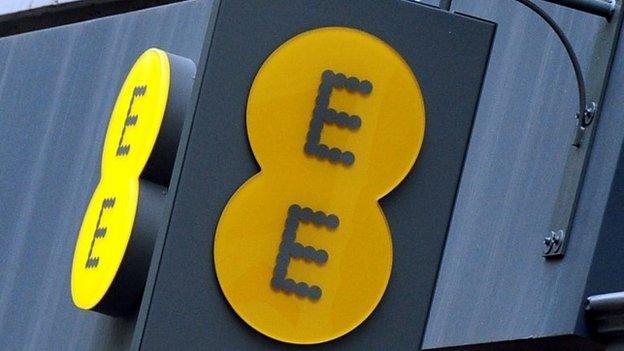EE losses shrink as costs savings hit £457m
- Published

EE is currently the UK's largest mobile phone operator
Mobile operator EE has reported a pre-tax loss of £101m for 2013, as it continues to pay down the costs of buying mobile bandwidth.
In 2012, the firm made a loss of £251m. The company estimates it has paid £16bn in capital costs in the past 12 years.
But EE said operating profits increased sharply last year, while cost savings as a result of merging Orange and T-Mobile totalled £457m.
Revenue was down slightly at £6.48bn, from £6.66bn in 2012.
"We successfully executed our strategy, growing our pay monthly base, delivering our targeted cost savings and achieving our best margin yet, all while cementing EE's position as the UK's best network for consumers and businesses alike," chief executive Olaf Swantee said.
The £16bn is broken down equally between spectrum costs, which go to the Treasury, and infrastructure costs, such as mobile masts. These large capital expenditures are then spread out over a number of years, a common accountancy practice known as amortisation.
EE said that profits for 2013, taking out tax, interest, amortisation and depreciation, were up 10% at £1.57bn. Using this measure, known as EBITDA, profit margins were 24.3%.
The operator also said it had added 756,000 contracted customers last year, some of which were previously pay-as-you-go customers.
On Thursday, EE announced that it would bring back 1,000 customer service jobs to the UK from overseas.
- Published20 February 2014
- Published22 October 2013
- Published30 October 2012